
Dr Chris Russell
Dieter Schwarz Associate Professor, AI, Government & Policy.
Chris Russell is the Dieter Schwarz Associate Professor, AI, Government and Policy. Dr Russell’s work lies at the intersection of computer vision and responsible AI.

With the rapid rise in artificial intelligence technologies, and the growing concern about the potential for both future existential threats, and imminent real-world harms, governments around the world are increasingly beginning to approach this technology as an urgent public policy priority. Some jurisdictions have proposed comprehensive packages of AI legislation, such as Brazil’s AI Bill, the AI Act in South Korea, Canada’s AI and Data Act, and the European Union’s AI Act. Other countries have responded with more targeted legislative initiatives, governance guidelines and recommended standards.
Concerns about safety and security have been core to these standards, reflected in the Executive Order issued by President Biden in the US, and in the AI Safety Summit convened by the British government and the resulting Bletchley Declaration. This declaration brought together governments from around the world to recognize a shared understanding of the opportunities and risks posed by this technology.
This array of responses shows increasing concern about how governments should respond to artificial intelligence, and the range of legislative options under consideration. These include specific aspects of the governance of AI systems in themselves, including initiatives towards explainable and accountable AI systems, and particular concerns about privacy and data protection. In addition, there is a concern about the regulation of particularly harmful technologies such as AI-guided munitions and invasive censorship systems such as emotional recognition.
Beyond the specific regulation of AI systems in themselves, policy priorities indicate concerns about where AI systems can exacerbate existing harms, around such areas as social discrimination, misinformation, hate speech, democratic participation and censorship. But there are also potentially beneficial applications of AI systems for policy initiatives, including automated fact-checking tools and solutions for digitising public services.
To address these urgent questions for public policy, this programme, supported by the Dieter Schwarz Foundation, enables researchers at the Oxford Internet Institute to undertake an ambitious programme of research dedicated to investigating the impacts of AI. It supports projects from faculty members and doctoral students for projects within this research area. It also enables our research partnership with the Technical University of Munich Campus Heilbronn on these topics.

Dieter Schwarz Associate Professor, AI, Government & Policy.
Chris Russell is the Dieter Schwarz Associate Professor, AI, Government and Policy. Dr Russell’s work lies at the intersection of computer vision and responsible AI.

Former MSc SSI Course Director
Keegan McBride was a departmental research lecturer in AI, Government, and Policy at the OII. His research creates insight about the state in the digital age by exploring the interactions between the state, society, and technology.

Lecturer in AI, Government & Policy
Ana Valdivia is an interdisciplinary scholar interested in the sociotechnical aspects of AI. Her current research explores the environmental impacts of AI supply chains by combining computational and ethnographic methodologies.

Professor of Digital Markets and Competition
Greg Taylor's research focuses on the economics of competition policy and regulation for digital and technology markets.

Former Professor of Economic Sociology and Digital Social Research
Vili Lehdonvirta is an expert on the politics and economics of digital platforms. His current research focuses on the geopolitics and geoeconomics of digital infrastructures.

Senior Research Fellow
Ralph Schroeder has interests in shared virtual environments and the sociology of science and technology. His current research is related to digital media and populism, climate change online, AI and social theory, and the internet in China and India.

Director, Associate Professor, Senior Research Fellow
Dr Scott A. Hale is Director, Associate Professor and Senior Research Fellow. He develops and applies computer science techniques to the social sciences focusing on increasing equitable access to quality information.

DPhil Student
Abid A. Adonis is a DPhil student at OII, interested in Digital Sovereignty, the Politics of Cyberspace, and the intersection between International Relations and technology.

DPhil Student
Başak is a PhD student in Social Data Science at the Oxford Internet Institute. Her research lies at the intersection of human-AI interaction, political science, communication and computational linguistics.

DPhil Student
Calvin is a DPhil candidate in Social Data Science at the Oxford Internet Institute. His research examines how digital technologies shape the diffusion of misinformation, the formation of ideology, and the dynamics of public opinion.

Former DPhil Student
Dr Linda Li is an LSE Fellow in Advanced Quantitative Methods in the Department of Methodology and an alumna of the Oxford Internet Institute.
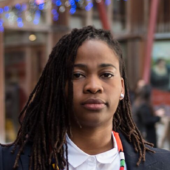
DPhil Student
Rutendo Chabikwa is a DPhil student at the OII. Her research applies a gender lens to understanding the effects of digital media on political participation in postcolonial contexts.

Former Research Assistant
Marta Ziosi’s research revolves around the use of data-driven risk-assessment tools in the Criminal Justice System. She focuses on alternative methods in machine learning to centre policies around prevention, rather than prediction, of crime.

Former MSc Student
Hannah Bailey studied for an MSc in the Social Science of the Internet at the Oxford Internet Institute. Research interests include China-US relations and China’s use of online censorship, with a focus on automated content analysis.

DPhil Student
Lisa is a DPhil student at the OII.

DPhil Student
Claire Leibowicz is a DPhil candidate and the Head of AI and Media Integrity at the Partnership on AI. Her research is generously funded by the OII Shirley Scholarship.

Former DPhil Student
Hubert is a DPhil student at the OII, interested in computational propaganda and social movements online.

DPhil Student
Yung's DPhil was in technology infrastructures and vertical/aerial surveillance.

DPhil Student
Anna George is a Social Data Science doctoral student who uses computational approaches to study online political behaviour. Her research focuses on the message diffusion of alternative communities such as hate groups and political extremists.

DPhil Student
Dylan Thurgood is a third-year DPhil in Social Data Science student and was previously a student on the MSc in Social Data Science. His research focuses on how online news exposure shapes political attitudes.


DPhil Student
Lujain is a DPhil student in Social Data Science at the OII. Her research sits at the intersection of AI governance and human-centred computing, particularly examining how user autonomy and control are undermined in human-AI interactions.

DPhil Student
Djavan is a part-time DPhil student conducting research at the intersection of agriculture and climatic change. He is currently a consultant at McKinsey & Company.

DPhil Student
Thomas holds a joint honours degree in Liberal Arts & Sciences from the University of Amsterdam and VU University, where he combined Cognitive Neuroscience with digital media studies. He has experience in clinical research and the telecom industry.

DPhil Student
Prathm Juneja is a student on the DPhil in Social Data Science, and was previously a student on the MSc in Social Data Science.

DPhil Student
Huw Roberts is a doctoral researcher at the University of Oxford’s Internet Institute and an Associate Fellow at the Royal United Services Institute (RUSI).
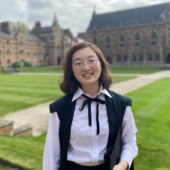
DPhil Student
Yushi is a DPhil student in Social Data Science at the OII, and an aspiring data scientist. Her research focuses on developing interpretability methods to improve safety mechanisms in large language models and ensure robust harm mitigation.

With Professor Vili Lehdonvirta
Watch Prof. Vili Lehdonvirta deliver his talk "Cloud empires’ physical footprint" at the Digital Governance Research Colloquium at the Hertie School Centre for Digital Governance.
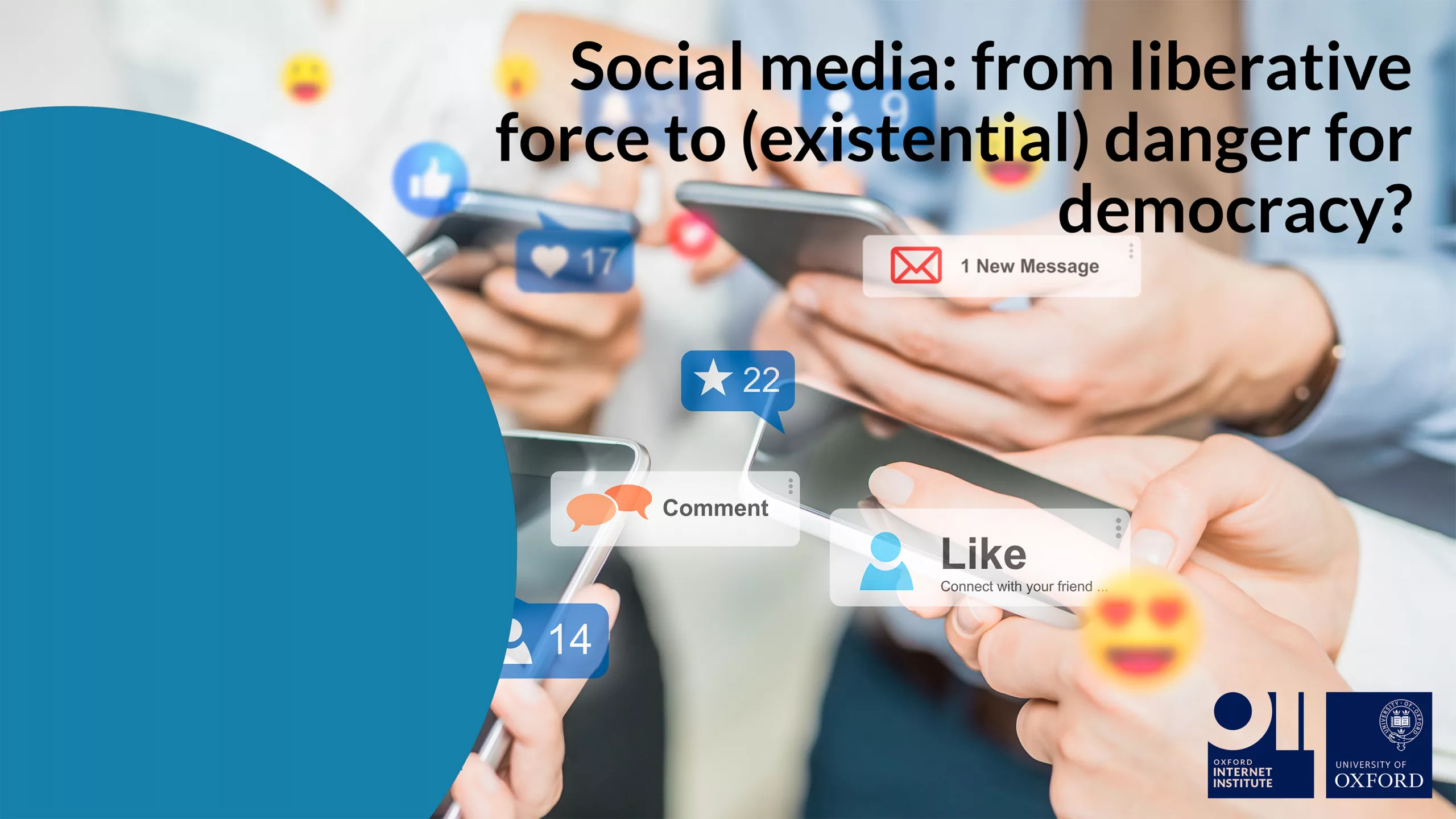
With Dr Aliaksandr Herasimenka, Mahsa Alimardani, Dr Jens Foerderer, Dr Michaela Lindenmayr, Professor Helmut Krcmar, and Assistant Prof Maximilian Schreieck
A joint webinar from the OII and TUM about governments using technology to control citizens and Firms’ fake follower use. This event is supported by the Dieter Schwarz Foundation
By Rutendo Chabikwa
This report provides an overview of whether African governments and regional bodies incorporate adequate consideration of gender in their discussions of AI and its potential role in economic development.
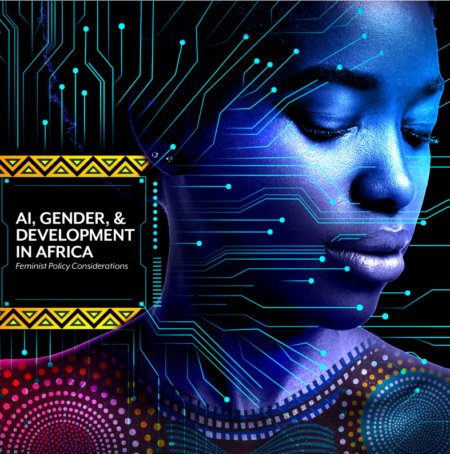

20 June 2025
OII researchers are set to attend the Association of Computing Machinery (ACM) Conference on Fairness, Accountability and Transparency (FAccT) 2025.
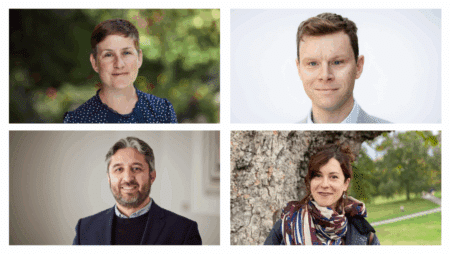
17 June 2025
Dr Adam Mahdi, Dr Ana Valdivia, Professor Greg Taylor, and Professor Kathryn Eccles are among the teaching faculty recognised for teaching excellence at Oxford.

26 June 2024
OII researchers outline the necessity for policymakers to start laying the foundations for a strong, robust, and resilient digital government today.

23 April 2024
Personalisation has the potential to democratise who decides how LLMs behave, but comes with risks for individuals and society, say Oxford researchers.

RTVE Noticias, 30 January 2026
Dr Ana Valdivia spoke to Spanish broadcaster RTVE about data centres, energy consumption and the environmental impact of AI.

CNN, 23 January 2026
As AI’s impact on jobs dominates the World Economic Forum in Davos, Dr Carl Frey highlights data showing machine translation has slowed translator job growth, warning that while displacement isn’t yet mass, deeper impacts on livelihoods are likely.

New York Times, 20 October 2025
As tech companies build data centers worldwide to advance artificial intelligence, vulnerable communities have been hit by blackouts and water shortages, with commentary from the OII's Dr Ana Valdivia.

Bloomberg, 04 August 2025
Opinion piece highlights the upcoming book from Professor Carl Frey, 'How Progress Ends'.
